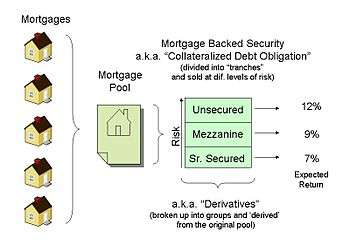Understanding Construction Loan Versus Mortgage: Key Differences and Considerations for Homebuyers
### Construction Loan Versus MortgageWhen it comes to financing your dream home, understanding the differences between a construction loan and a mortgage is……
### Construction Loan Versus Mortgage
When it comes to financing your dream home, understanding the differences between a construction loan and a mortgage is crucial. Both options serve different purposes and come with unique features that can significantly impact your financial planning. In this article, we will explore the key differences between a construction loan and a mortgage, helping you make an informed decision based on your specific needs.
### What is a Construction Loan?
A construction loan is a short-term financing option specifically designed for individuals who are building a new home or undertaking significant renovations. Unlike traditional mortgages, which provide a lump sum of money for purchasing an existing property, construction loans disburse funds in stages, known as "draws." These draws are released based on the progress of the construction project, allowing you to pay contractors and suppliers as needed.
Construction loans typically have higher interest rates compared to traditional mortgages, reflecting the increased risk lenders face when financing a project that is not yet complete. Additionally, these loans usually require a larger down payment, often ranging from 20% to 25% of the total project cost. Borrowers must also provide detailed plans, budgets, and timelines to secure a construction loan, making the application process more complex.
### What is a Mortgage?

A mortgage, on the other hand, is a long-term loan used to purchase an existing home or property. Mortgages are typically structured with fixed or adjustable interest rates and are repaid over a period of 15 to 30 years. The borrower receives the full loan amount upfront, which is then used to buy the property. In this case, the home itself serves as collateral for the loan.
Mortgages usually require a lower down payment compared to construction loans, with options as low as 3% for some government-backed programs. The application process for a mortgage is generally more straightforward, as it involves assessing the borrower’s creditworthiness and income rather than evaluating construction plans.
### Key Differences Between Construction Loans and Mortgages
1. **Purpose**: The primary difference lies in their purpose. Construction loans are intended for building or renovating homes, while mortgages are for purchasing existing properties.
2. **Disbursement of Funds**: Construction loans release funds in stages based on construction milestones, whereas mortgages provide the full loan amount upfront.

3. **Interest Rates**: Construction loans often come with higher interest rates due to the associated risks, while mortgage rates can be more favorable.
4. **Down Payment Requirements**: Construction loans typically require a larger down payment compared to mortgages, which may have lower down payment options.
5. **Application Process**: Obtaining a construction loan involves a more detailed application process, including project plans and budgets, while mortgages focus on the borrower’s financial stability.
### Considerations for Homebuyers
When deciding between a construction loan and a mortgage, consider your financial situation, the type of property you wish to acquire, and your long-term goals. If you plan to build a custom home or make significant renovations, a construction loan may be the best option. However, if you are looking to purchase an existing home, a mortgage is likely the more suitable choice.

Additionally, it’s essential to consult with financial advisors and lenders to understand the specific terms and conditions associated with each type of financing. By carefully weighing your options, you can choose the financing solution that aligns with your vision for homeownership.
In conclusion, understanding the nuances of construction loans versus mortgages is vital for any prospective homebuyer. By knowing the differences and considering your individual needs, you can make an informed decision that will set you on the path to homeownership.